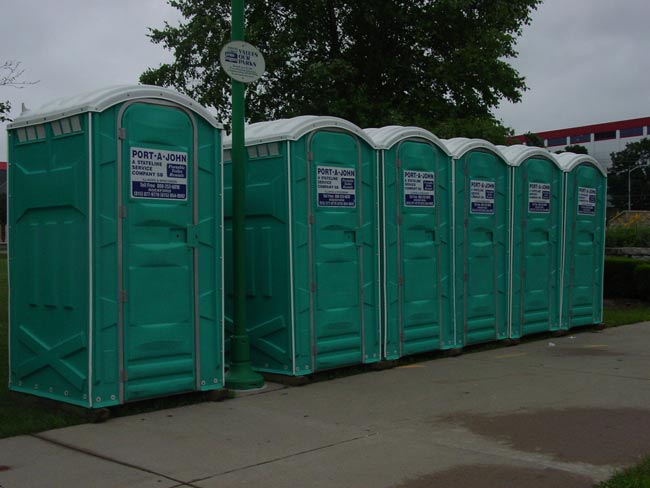Inauguration Worry: No Place to Pee

Get the world’s most fascinating discoveries delivered straight to your inbox.
You are now subscribed
Your newsletter sign-up was successful
Want to add more newsletters?

Delivered Daily
Daily Newsletter
Sign up for the latest discoveries, groundbreaking research and fascinating breakthroughs that impact you and the wider world direct to your inbox.

Once a week
Life's Little Mysteries
Feed your curiosity with an exclusive mystery every week, solved with science and delivered direct to your inbox before it's seen anywhere else.

Once a week
How It Works
Sign up to our free science & technology newsletter for your weekly fix of fascinating articles, quick quizzes, amazing images, and more

Delivered daily
Space.com Newsletter
Breaking space news, the latest updates on rocket launches, skywatching events and more!

Once a month
Watch This Space
Sign up to our monthly entertainment newsletter to keep up with all our coverage of the latest sci-fi and space movies, tv shows, games and books.

Once a week
Night Sky This Week
Discover this week's must-see night sky events, moon phases, and stunning astrophotos. Sign up for our skywatching newsletter and explore the universe with us!
Join the club
Get full access to premium articles, exclusive features and a growing list of member rewards.
My sister and I are going to the inauguration. It's not only an historic occasion for the country, it's also a walk down memory lane for us. On Jan. 20, 1961, when I was 10 and she was 15, our parents took us to watch John F. Kennedy become the youngest, and first Roman Catholic, president of the United States. We are, of course, all fired up about this trip, but we do have one worry. We aren't worried about the crowds, we don't care about seeing anything up close, and we are prepared for the cold. What worries us most is finding a place to pee. And apparently we aren't the only people with this concern. Law professor John Banzhaf of George Washington University is known as the "Father of Potty Parity" for championing a woman's right for more public bathrooms. Professor Banzhaf has recently weighed in with his opinion that 5,000 porta-pottys dappling the Washington Mall and the parade route on inauguration day are simply not enough for the expected crowd. A concern for a place to go might seem trivial, but sanitation is a mark of civilization. When humans were hunters and gatherers, they presumably went wherever, but once people began to build temporary shelters, they surely designated places outside the hut simply because of the smell. Once people began to settle down permanently, they must have seen the problem very quickly. At that point, it has to be the mounds of pure muck that drove the first sanitation engineers to the drawing board. Archaeologists have uncovered flush toilets and sewage systems in two cities in the Indus Valley in India and Pakistan that are more than 4,500 years old. Plumbing of a similar age that relied on gravity, not water, to make things go away was also found in the Orkney Islands off the North Coast of Scotland. The ancient Romans were famous, at least among classical archaeologists and enthusiastic tourists to Roman sites, for their public latrines. These facilities were nice places, clean and full of light. They were also places where a user who needed to sit might strike up a conversation with the person on the next seat. Romans also collected public urine in urns and sold it to dry cleaners where it was used to remove stains from togas. They were less enterprising with solid waste and just piped it out of the cities and into the rivers. Today we know that human waste can carry viruses and bacteria, and that good sanitation in the form of toilets that take waste someplace and make sure our food and water supplies stay clean is a public health necessity. Without contained placed to go and proper control of waste disposal, we are all subject to diseases and epidemics. We also know that there won't be enough toilets on the Washington Mall next Tuesday, and so it might be a good time for my sister and I to remember the words of John F. Kennedy on that inaugural day 48 years ago and realize that what we can do for our country this inaugural day … is hold it.
- Video – The Dirt on Staying Clean
- Politics: News and Information
- 7 Perfect Survival Foods
Meredith F. Small is an anthropologist at Cornell University. She is also the author of "Our Babies, Ourselves; How Biology and Culture Shape the Way We Parent" (link) and "The Culture of Our Discontent; Beyond the Medical Model of Mental Illness" (link).
Get the world’s most fascinating discoveries delivered straight to your inbox.
 Live Science Plus
Live Science Plus










